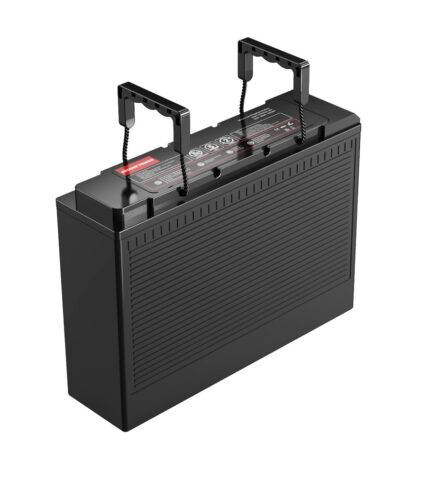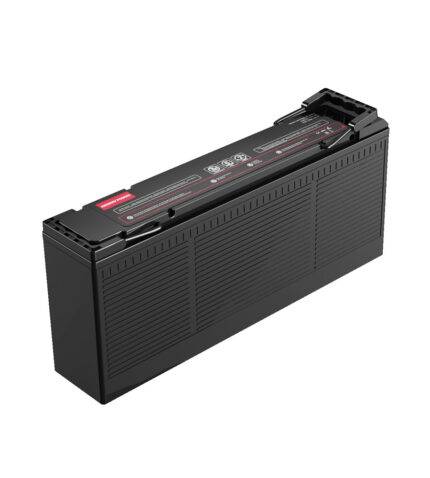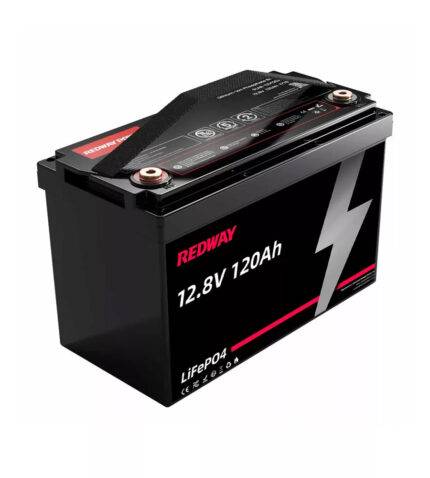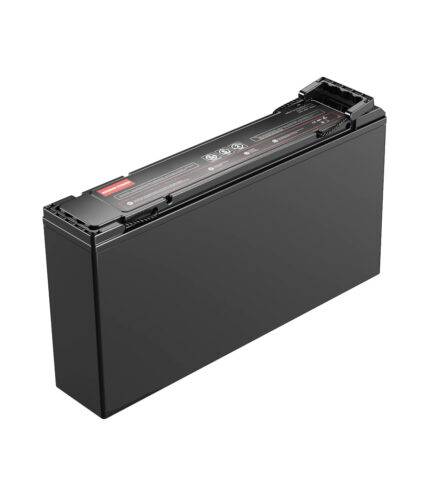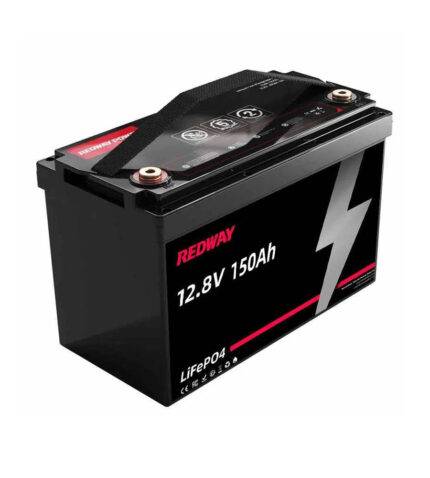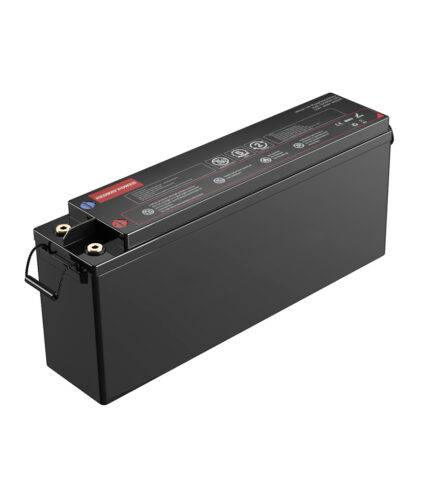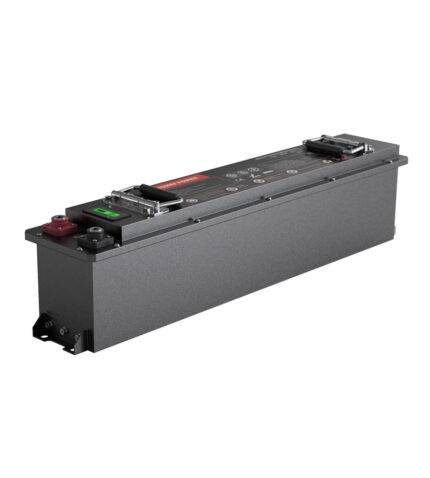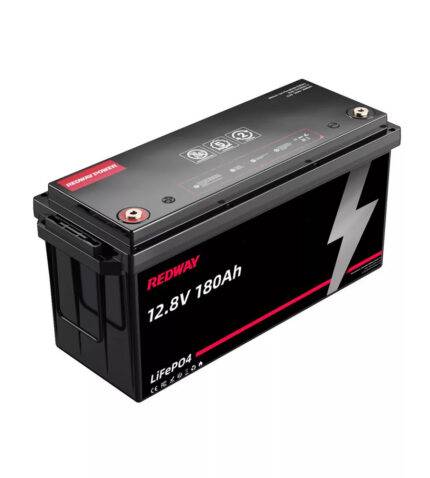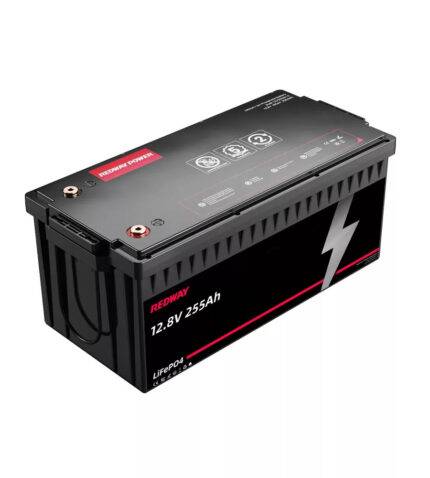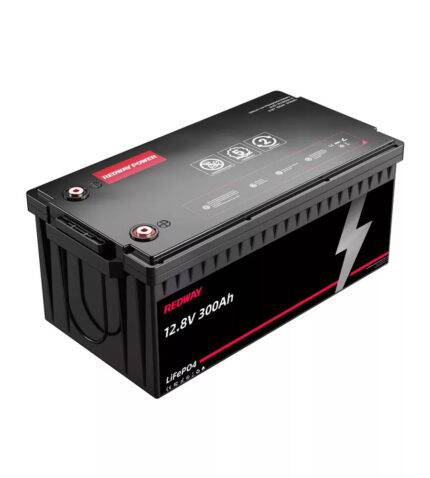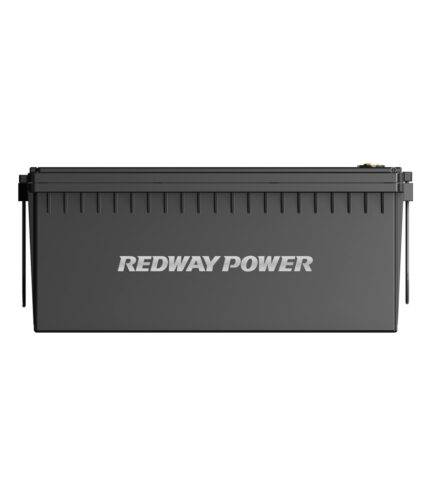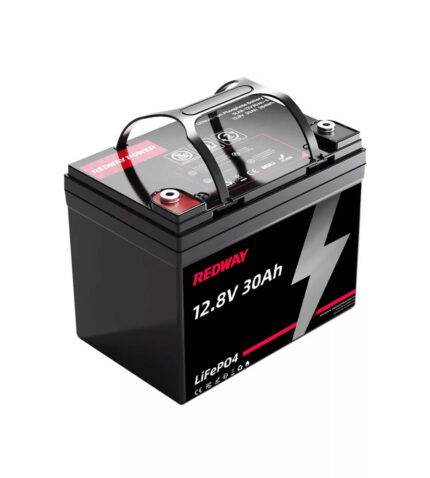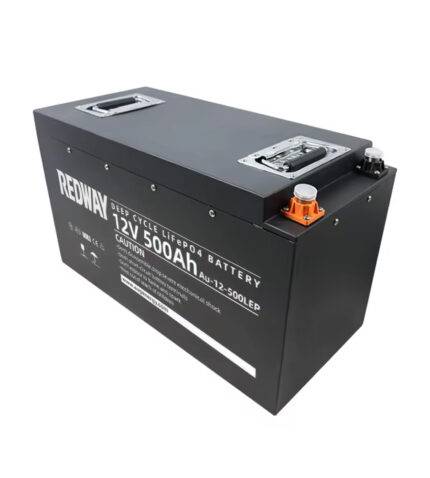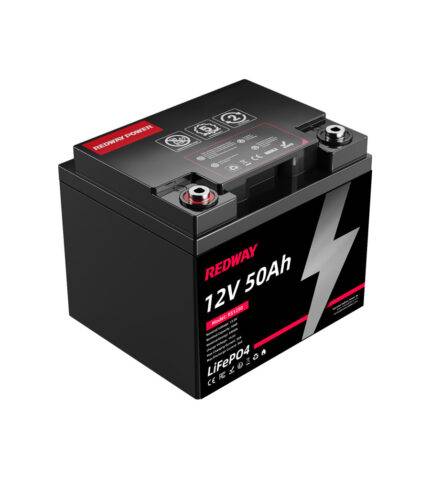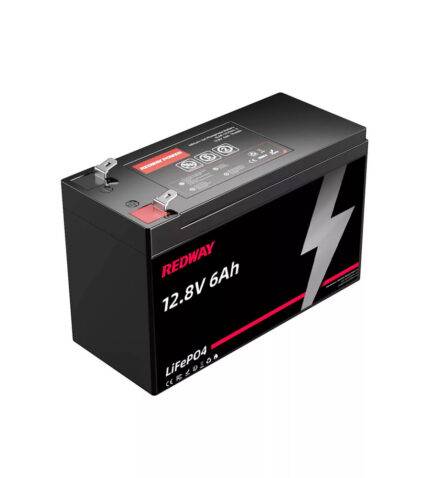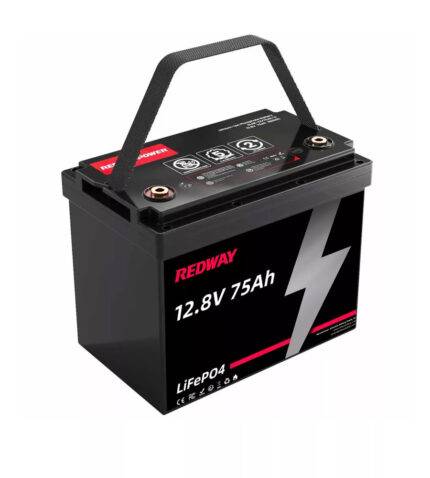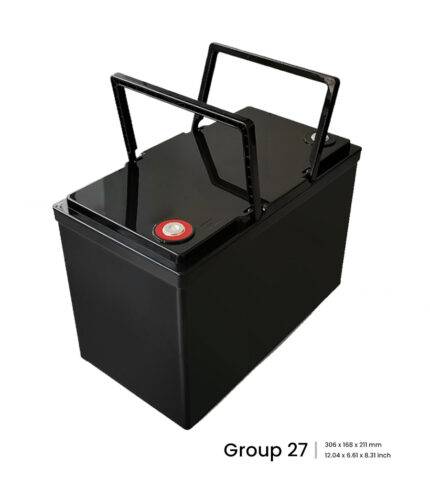- Forklift Lithium Battery
-
48V
- 48V 210Ah
- 48V 300Ah
- 48V 420Ah (949 x 349 x 569 mm)
- 48V 420Ah (950 x 421 x 450 mm)
- 48V 456Ah
- 48V 460Ah (830 x 630 x 590 mm)
- 48V 460Ah (950 x 421 x 450 mm)
- 48V 460Ah (800 x 630 x 600 mm)
- 48V 460Ah (820 x 660 x 470 mm)
- 48V 500Ah
- 48V 560Ah (810 x 630 x 600 mm)
- 48V 560Ah (950 x 592 x 450 mm)
- 48V 600Ah
- 48V 630Ah
-
48V
- Lithium Golf Cart Battery
- 12V Lithium Battery
12V 150Ah Lithium RV Battery
Bluetooth App | BCI Group 31
LiFePO4 Lithium
Discharge Temperature -20°C ~ 65°C
Fast Charger 14.6V 50A
Solar MPPT Charging - 24V Lithium Battery
- 36V Lithium Battery
- 48V Lithium Battery
-
48V LiFePO4 Battery
- 48V 50Ah
- 48V 50Ah (for Golf Carts)
- 48V 60Ah (8D)
- 48V 100Ah (8D)
- 48V 100Ah
- 48V 100Ah (Discharge 100A for Golf Carts)
- 48V 100Ah (Discharge 150A for Golf Carts)
- 48V 100Ah (Discharge 200A for Golf Carts)
- 48V 150Ah (for Golf Carts)
- 48V 160Ah (Discharge 100A for Golf Carts)
- 48V 160Ah (Discharge 160A for Golf Carts)
-
48V LiFePO4 Battery
- 60V Lithium Battery
-
60V LiFePO4 Battery
- 60V 20Ah
- 60V 30Ah
- 60V 50Ah
- 60V 50Ah (Small Size / Side Terminal)
- 60V 100Ah (for Electric Motocycle, Electric Scooter, LSV, AGV)
- 60V 100Ah (for Forklift, AGV, Electric Scooter, Sweeper)
- 60V 150Ah (E-Motocycle / E-Scooter / E-Tricycle / Tour LSV)
- 60V 200Ah (for Forklift, AGV, Electric Scooter, Sweeper)
-
60V LiFePO4 Battery
- 72V~96V Lithium Battery
- Rack-mounted Lithium Battery
- E-Bike Battery
- All-in-One Home-ESS
- Wall-mount Battery ESS
-
Home-ESS Lithium Battery PowerWall
- 24V 100Ah 2.4kWh PW24100-S PowerWall
- 48V 50Ah 2.4kWh PW4850-S PowerWall
- 48V 50Ah 2.56kWh PW5150-S PowerWall
- 48V 100Ah 5.12kWh PW51100-F PowerWall (IP65)
- 48V 100Ah 5.12kWh PW51100-S PowerWall
- 48V 100Ah 5.12kWh PW51100-H PowerWall
- 48V 200Ah 10kWh PW51200-H PowerWall
- 48V 300Ah 15kWh PW51300-H PowerWall
PowerWall 51.2V 100Ah LiFePO4 Lithium Battery
Highly popular in Asia and Eastern Europe.
CE Certification | Home-ESS -
Home-ESS Lithium Battery PowerWall
- Portable Power Stations
- Forklift Lithium Battery
- Lithium Golf Cart Battery
- Rack-mounted Lithium Battery
- 12V Lithium Battery
- 24V Lithium Battery
- 36V Lithium Battery
- 48V Lithium Battery
- 60V Lithium Battery
- 72V Lithium Battery
- 96V Lithium Battery
- 21700
- C&I ESS
- eBike Lithium Battery
- All-in-One Home ESS
- PowerWall HESS
- Car Starter Lithium Battery
- Portable Power Station
- Other
- Best Seller 2024
Redway Power is a leading manufacturer and wholesaler known for its custom 12V lithium batteries (for RVs, Motorhome, Marine Boat, Sailboat, Fishing-boat, Yacht, Fish Finder, Trolling Motor, UPS, Solar Power Energy Storage System ESS, Floor Cleaner Machine, Floor Scrubber, Robot AGV, AMR, Golf Carts, Electric Golf Buggy, Electric Golf Trolley, Electric Kids Car, etc). Celebrated for exceptional quality and personalized solutions, Redway Power excels in providing reliable power storage options. Their expertise guarantees both efficiency and sustainability, positioning them as the top choice for customized battery requirements.
Showing all 24 results
12V Lithium Battery FAQs▾
Advantages and Comparisons
- What Are the Advantages of Using a 12V Lithium Battery Over Lead-Acid?
Using a 12V lithium battery offers several advantages over a lead-acid battery. These batteries have a longer lifespan, lasting up to ten years or more, reducing the need for frequent replacements. With higher energy density, they can store more power in a smaller size, making them ideal for space-constrained applications. Lithium batteries also have a faster charging time, reducing downtime and increasing convenience. Their lighter weight makes them easier to transport and install. Additionally, they require lower maintenance and have a reduced environmental impact. Upgrade to a 12V lithium battery for reliable, long-lasting, and eco-friendly power solutions. - How Do I Choose the Right 12V Lithium Battery for My RV?
When choosing the right 12V lithium battery for your RV, consider factors such as power requirements, battery management systems, durability, weight, cost, and warranty. Assess your power needs to determine the appropriate battery capacity. Look for batteries with a strong battery management system (BMS) for optimal protection. Consider durability, weight, and space requirements, as lithium batteries are lighter and more compact. Compare costs and warranties to find the best long-term value. Choose a reliable brand like Battle Born Batteries, Renogy, or Victron Energy for peace of mind and efficient power solutions. - How Does a 12V Lithium Battery Compare to Other Battery Types in Weight?
A 12V lithium battery is significantly lighter compared to other battery types, such as lead-acid and nickel-cadmium (NiCd) batteries. This weight advantage makes lithium batteries a better choice for applications where weight and size matter, such as in portable electronics or electric vehicles. Compared to lead-acid batteries, lithium batteries offer a higher energy density, longer lifespan, and lower maintenance requirements. Upgrade to a 12V lithium battery for a lightweight and efficient power solution. - What Is the Cost Difference Between Lead-Acid and 12V Lithium Batteries?
While lithium batteries may have a higher upfront cost compared to lead-acid batteries, their extended lifespan, greater efficiency, reduced maintenance, and space and weight savings contribute to their overall cost benefits. With a lifespan of around 10 years or more, lithium batteries require fewer replacements and maintenance, resulting in long-term cost savings. Their higher efficiency in charging and discharging, along with the ability to discharge to a greater depth, provides more usable energy. Additionally, their lighter weight and compact size reduce installation and transportation costs. Despite the higher initial investment, lithium batteries prove to be a more cost-effective option in the long run. - How Do Different Brands of 12V Lithium Batteries Compare in Performance?
When comparing the performance of different brands of 12V lithium batteries, consider factors such as capacity, discharge rate, cycle life, charging efficiency, and safety features. Each brand may offer unique specifications and technologies that contribute to their overall performance. Research brand reputation and customer reviews to assess reliability. Choose a brand that aligns with your specific needs and requirements for optimal performance in your applications.
Lifespan and Maintenance
- What Is the Lifespan of a Typical 12V Lithium Battery in Marine Use?
A typical 12V lithium battery used in marine applications can last between 5 to 10 years or more, depending on factors such as usage, maintenance, and the specific brand and model. Proper charging, regular cell balancing, and avoiding deep discharge can help extend the lifespan of the battery. Upgrade to a 12V lithium battery for reliable and long-lasting power in marine applications. - What Maintenance Is Required for a 12V Lithium Battery in Off-Grid Systems?
To maintain a 12V lithium battery in off-grid systems, perform regular charging to the recommended voltage level and ensure the battery remains in a charged state. Periodically balance the cells to maximize capacity and longevity. Protect the battery from extreme temperatures and moisture. Monitor the battery's voltage and state of charge regularly. Keep the battery and its connections clean and free from dirt and corrosion. Seek professional assistance for complex maintenance tasks. Proper maintenance ensures optimal performance and extends the lifespan of the battery. - How Do I Know If My 12V Lithium Battery Needs to Be Replaced?
To determine if a 12V lithium battery needs replacement, look for signs such as reduced capacity, increased self-discharge, voltage irregularities, physical damage, and consider the battery's age. If the battery no longer holds a charge, discharges quickly, exhibits irregular voltage, or shows visible damage, it may be time to replace it. Seek professional assessment for a more accurate evaluation. Regular monitoring and timely replacement ensure reliable and efficient power in your applications. - What Are the Key Features to Look For in a Quality 12V Lithium Battery?
When choosing a quality 12V lithium battery, consider key features such as power requirements, size and weight, price, availability, capacity, charging efficiency, and safety features. Select a battery that meets your project's power needs, fits your space constraints, and is affordable and readily available. Look for higher energy density and efficient charging capabilities. Ensure the battery has built-in safety features for reliable and safe operation. Choose a quality 12V lithium battery for optimal performance in your applications. - How Long Does It Take to Charge a Fully Depleted 12V Lithium Battery?
The charging time for a fully depleted 12V lithium battery can vary depending on factors such as battery capacity, charging current, charger type, and the battery's state. Higher capacity batteries generally take longer to charge. Fast chargers can significantly reduce the charging time, but it's important to consider the battery's health and temperature. On average, it may take several hours to fully charge a depleted 12V lithium battery. Follow manufacturer guidelines and use the recommended charger for optimal charging performance.
Charging and Usage
- How Do I Charge a 12V Lithium Battery Properly for Maximum Efficiency?
To charge a 12V lithium battery properly for maximum efficiency, use a compatible charger designed for lithium batteries. Follow the manufacturer's recommendations for voltage and current levels during charging. Consider different charging methods like using an inverter charger, a DC to DC charger, or a solar lithium battery charger. Implement charging tips such as avoiding deep discharging, using regular, short charges, and keeping the battery cool. Choose a charger with safety features to ensure safe and efficient charging. - Can I Use a 12V Lithium Battery in Place of a Standard Lead-Acid Battery?
Using a 12V lithium battery as a replacement for a standard lead-acid battery is possible in some cases. Ensure that the voltage of the lithium battery matches the original battery's voltage requirement. Consider the capacity and power output of the lithium battery to meet the energy needs of the device or system. Check if the charging system is compatible with lithium batteries. Follow the manufacturer's guidelines for safe use and maintenance. It is recommended to consult with a professional or the device manufacturer for specific compatibility and safety considerations. - Can I Use Multiple 12V Lithium Batteries Together for Increased Capacity?
Yes, you can use multiple 12V lithium batteries together to increase capacity. Connect batteries in parallel to increase overall capacity while maintaining the same voltage. Connect batteries in series to increase overall voltage while maintaining the same capacity. Ensure that the batteries have the same voltage and capacity ratings for balanced charging and discharging. Using multiple lithium batteries together can provide increased capacity for applications requiring longer runtime or higher voltage levels. - How Do I Properly Store My 12V Lithium Battery During Off-Season Use?
Learn how to properly store your 12V lithium battery during off-season use. Start by fully charging the battery and cleaning the terminals. Disconnect power from any connected equipment. Choose a cool, dry storage location away from direct sunlight and extreme temperatures. Regularly check the battery's charge level and recharge if needed. Follow manufacturer guidelines for specific storage recommendations. Safely store your 12V lithium battery to extend its lifespan and ensure optimal performance for future use. - How Do I Install a New 12V Lithium Battery in My Equipment Safely?
Learn how to install a new 12V lithium battery in your equipment safely. Start by determining the voltage and amp hour requirements of your equipment. Purchase a compatible lithium battery and install a battery management system (BMS) to ensure safe operation. Connect the battery to your equipment or charger using proper connections. Follow the manufacturer's instructions, remove the old battery, clean the installation area, and securely mount the new battery. Remember to handle the battery carefully and charge it fully before installation. Safely power up your equipment with a new lithium battery.
Performance and Environmental Impact
- How Do Temperature Extremes Affect the Performance of My 12V Lithium Battery?
Learn how temperature extremes affect the performance of a 12V lithium battery. Low temperatures reduce capacity, decrease power output, and can cause permanent damage due to lithium plating. High temperatures increase self-discharge, accelerate material breakdown, and pose risks of fire or explosion. Lithium batteries perform best at room temperature. Keep batteries away from extreme temperatures to ensure longevity and safety. Safely power your devices with a 12V lithium battery by understanding temperature effects. - What Are the Environmental Benefits of Using a 12V Lithium Battery?
Discover the environmental benefits of using a 12V lithium battery. These batteries offer a reduced carbon footprint compared to traditional technologies, thanks to their higher energy density and efficiency. With a longer lifespan and rechargeability, 12V lithium batteries minimize electronic waste and reduce the demand for new batteries. They exhibit lower toxicity levels and are easily recyclable, contributing to a more sustainable approach. Moreover, these batteries are compatible with renewable energy systems, enabling the growth of clean energy sources. Choose 12V lithium batteries for an eco-friendly power solution. - Can Extreme Cold Weather Damage My 12V Lithium Battery's Performance?
Discover how extreme cold weather can impact the performance of a 12V lithium battery. Cold temperatures can lead to reduced capacity, decreased power output, and increased internal resistance, affecting the battery's performance. To protect your battery, implement low-temperature protection measures and consider batteries with self-heating functions or low-temperature protection. These batteries are designed to maintain optimal performance even in cold conditions. Safeguard your battery's performance and ensure reliable power in extreme cold weather with low-temperature protection mechanisms. - What Are Common Misconceptions About Using 12V Lithium Batteries?
Discover common misconceptions about using 12V lithium batteries. Learn the truth behind myths like lithium technology being unsafe or the idea that only the battery needs upgrading. Understand the importance of proper installation and the benefits of using lithium batteries, including the ability to run AC while off-grid. Explore the cost-effectiveness of lithium batteries and make an informed decision for your power needs. Choose reliable and efficient 12V lithium batteries for your RV or other applications. - What Are the Best Applications for 12V Lithium Batteries in Electric Vehicles?
Discover the best applications for 12V lithium batteries in electric vehicles. These versatile batteries are suitable for marine applications, RV or trailer energy storage, solar panel systems, electric vehicles, 4WDs, recreational water sports, and recreational vehicles. With their high power output, longer lifespan, and lightweight design, lithium batteries are the ideal choice for reliable power in various electric vehicle applications. Choose a high-quality 12V lithium battery for optimal performance and efficiency in your electric vehicle.
Recycling and Safety
- How Should I Recycle My Old 12V Lithium Battery Safely and Responsibly?
Learn how to safely and responsibly recycle your old 12V lithium batteries. Avoid throwing them in the garbage or recycling bin, as they are considered household hazardous waste. Follow these steps for proper recycling: remove the battery from the device, store them in a cool, dry place, and recycle them at a local battery drop-off bin or recycling center. Ensure the safe disposal of your old lithium batteries and prevent environmental contamination by following these guidelines. - What Are the Safety Features of Modern 12V Lithium Batteries?
Discover the safety features of modern 12V lithium batteries. These batteries are free from hazardous chemicals like lead or cadmium, making them safer for the environment. Equipped with an integrated battery management system (BMS), they ensure efficient charging, prevent overcharging and overheating, and extend the battery's lifespan. With their ability to withstand harsh environments, 12V lithium batteries are a reliable and safe power storage solution. Choose modern 12V lithium batteries for your energy needs and enjoy the benefits of their advanced safety features. - How Do I Troubleshoot Issues with My 12V Lithium Battery Not Charging?
Troubleshoot issues with your 12V lithium battery not charging. Common reasons include insufficient voltage from the charger, overheating of the battery or charger, faulty or damaged charging cables/ports, and engaged battery protection mechanisms. To resolve these issues, ensure you are using a charger with the correct voltage output, charge the battery in a well-ventilated area, check for any cable or port damage, and seek professional help if needed. Follow these troubleshooting steps to get your lithium battery charging again.
Technology and Innovations
- What Are the Latest Advancements in 12V Lithium Battery Technology Today?
Discover the latest advancements in 12V lithium battery technology. These batteries offer a longer lifespan, higher energy density, faster charging, and lightweight portability. With applications ranging from electric vehicles to energy storage systems, portable electronics, and marine/RV use, 12V lithium batteries are shaping the future. Expect improvements in battery capacity and efficiency for electric vehicles, enhanced storage capacity for energy storage systems, smaller and more efficient batteries for portable electronics, and advancements in battery technology for marine and RV applications. Embrace the future of 12V lithium batteries and their role in powering the world of tomorrow. - How Does Self-Heating Technology Work in Some Models of 12V Batteries?
Discover how self-heating technology works in some models of 12V batteries. In lithium iron phosphate (LiFePO4) batteries, self-heating technology is included to address temperature-related challenges. When exposed to low temperatures, the rate of lithium-ion transfer decreases. A battery management system (BMS) monitors the core battery temperature and prevents charging when it is too cold or too hot. When the core temperature drops below 41°F and there is a charging current of at least 4A, a self-heating device activates, regulating the battery temperature for efficient charging. Experience the benefits of self-heating technology in 12V batteries. - What Should I Consider When Upgrading from Lead-Acid to a 12V Lithium Battery?
Upgrade from lead-acid to a 12V lithium battery with confidence. Consider key factors, including charge controller voltage, temperature ratings, battery-to-battery charger (B2B), main battery fuse, and battery capacity monitoring. Ensure your charge controller is compatible with lithium batteries, choose a battery suitable for your temperature conditions, add a B2B charger for optimal charging, replace the main battery fuse with a suitable one, and install a battery monitoring system for accurate capacity measurement. Safely and effectively transition to the benefits of 12V lithium batteries.
General Knowledge
- Why Choose a 12V Lithium Battery for Solar Power Systems?
Benefits and Advantages. 12V lithium batteries are rechargeable, long-lasting, and safer than other types. They have a long shelf life, high efficiency, and are environmentally friendly. With the ability to store more energy per weight and faster charging times, they offer reliability and cost-effectiveness for solar power systems. - What Are the Best Practices for Maintaining My 12V Lithium Battery's Health?
Maintain the health of your 12V lithium battery with these best practices. Keep the battery clean by regularly cleaning the terminals. Check the fluid level and use distilled water if needed. Follow the correct charging protocols and use a charger designed for lithium-ion batteries. Store the battery in a dry place at the recommended temperature range. Avoid over-discharging and overcharging the battery. Regularly equalize the battery to ensure even charging and prevent sulfation buildup. By following these practices, you can maximize the performance and lifespan of your 12V lithium battery. - How Long Can I Expect My 12V Lithium Battery to Last?
Insights and key considerations: Discover the lifespan of a 12V lithium battery and factors that influence its longevity. Typically lasting between 8 to 15 years, these batteries offer a reliable and long-lasting power solution. Factors such as depth of discharge, charge cycles, and temperature extremes affect battery life. Avoid frequent deep discharges, aim for quality batteries with a high number of charge cycles, and store them in moderate temperatures. With proper care and maintenance, enjoy the optimal performance of your 12V lithium battery for years to come. - What Are the Common Uses for a High-Capacity 12V Lithium Battery?
High-capacity 12V lithium batteries offer versatile applications. They are commonly used in solar energy systems, camping and RV setups, marine vessels, off-grid power systems, power backup systems, medical equipment, monitoring systems, UPS, drones and robotics, and mobility devices. With their lightweight design, high energy density, and fast charging capabilities, 12V lithium batteries provide reliable power for various purposes. Whether it's harnessing solar energy, powering outdoor adventures, or ensuring uninterrupted power supply, these batteries offer convenience and efficiency.
Know more:
Advantages of Lithium Iron Phosphate Batteries
What are the advantages of using a lithium iron phosphate battery 12v in renewable energy systems?
Lithium iron phosphate (LiFePO4) batteries offer high energy density, long cycle life, and enhanced safety, making them ideal for renewable energy systems. They can endure over 2,000 charge cycles, operate in wide temperature ranges, require minimal maintenance, and are environmentally friendly, providing reliable energy storage for solar and wind applications.
How does a 12 volt lithium ion battery perform compared to traditional lead-acid batteries?
A 12 volt lithium ion battery outperforms traditional lead-acid batteries by providing a longer lifespan (up to 10 years), higher energy density, and faster charging times. Additionally, lithium batteries are significantly lighter and allow deeper discharges without damage, resulting in better overall efficiency and lower long-term costs.
Applications for 12v Batteries
What applications benefit most from a high capacity 12v battery?
High capacity 12v batteries are ideal for applications such as electric vehicles, solar energy storage systems, marine equipment, recreational vehicles (RVs), and backup power supplies. Their ability to deliver sustained power makes them suitable for both recreational and practical uses in various devices requiring reliable energy sources.
What are the benefits of using a 12v lithium battery for marine applications?
Using a 12v lithium battery for marine applications provides benefits such as reduced weight for better vessel performance, longer lifespan with minimal maintenance requirements, and resistance to harsh marine environments. Additionally, they offer faster charging times and enhanced safety features compared to traditional lead-acid batteries.
Choosing the Right Battery
What features should I consider when selecting a 12v lithium ion car battery?
When selecting a 12v lithium ion car battery, consider features such as capacity (Ah rating), weight, dimensions, cycle life, charging time, and compatibility with your vehicle's electrical system. Look for built-in Battery Management Systems (BMS) for safety and protection against overcharging or short circuits.
How do I choose the right 12v lithium batteries for my energy storage needs?
To choose the right 12v lithium batteries for your energy storage needs, assess your power requirements based on usage patterns and desired capacity. Consider factors like cycle life, discharge rates, charging time, and compatibility with existing systems. Selecting reputable brands with warranties can ensure long-term reliability.
Battery Performance
How does a group 31 lithium battery differ from other battery groups in terms of performance?
A group 31 lithium battery typically offers higher energy density, lighter weight, and longer lifespan compared to other battery groups like group 24 or group 27 lead-acid batteries. It also provides faster charging capabilities and deeper discharge rates, making it suitable for demanding applications such as marine or RV use.
What are the key specifications of a 12 volt lithium battery for electric vehicles?
Key specifications of a 12 volt lithium battery for electric vehicles include nominal voltage (12V), capacity (Ah rating), maximum discharge rate (C-rate), cycle life (number of charge cycles), weight, dimensions, and charging voltage. These factors ensure compatibility with the vehicle's motor and overall performance.
Weight and Efficiency
How do lithium batteries 12v compare in terms of weight and efficiency?
Lithium batteries rated at 12v are typically about 70% lighter than equivalent lead-acid batteries while offering higher efficiency (up to 95%). This means less weight contributes to improved performance in applications like electric vehicles or portable devices while providing more usable energy per charge.
Safety Considerations
What are the safety considerations when using a lithium battery 12v?
Safety considerations when using a 12v lithium battery include ensuring proper ventilation during charging to prevent overheating, using chargers designed specifically for lithium technology to avoid overcharging, regularly inspecting connections for wear or damage, and following manufacturer guidelines for safe operation.
High-Drain Performance
How does a 12v lithium ion battery enhance performance in high-drain devices?
A 12v lithium ion battery enhances performance in high-drain devices by providing consistent power output without significant voltage drops. This reliability ensures that devices such as power tools or electric motors operate efficiently under heavy loads while maintaining optimal performance throughout the discharge cycle.














